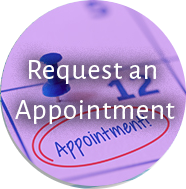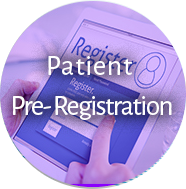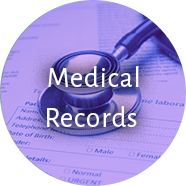I've been told I have arthritis…so now what?
Osteoarthritis is the most common form of arthritis with millions of new cases each year in the US. The most common cause is "wear and tear", however, following an injury you can develop a form of osteoarthritis called traumatic arthritis. Either way there are things that you can do to be proactive about your health and support your body once you have this diagnosis.
Stay active. You've probably noticed that if you sit for too long things start to get stiff. Chances are the last thing you want to do is exercise, however, there are cells within your joints that are activated by movement to release endorphins which are the body's own natural pain reliever. Exercise will maintain your flexibility and strengthen your muscles, which in turn supports your joints.
Eat a balanced diet and lose weight. You've heard the old adage, "you are what you eat". Filling your body with processed foods stresses your body and can increase inflammation. Eating healthy nutritious foods will assist you in losing weight and helps to relieve the symptoms of inflammation.
Use hot packs and/or cold packs. Using heat can increase your flexibility while using ice can decrease pain and swelling.
Use NSAID's. NSAID's are non-steroidal anti-inflammatory drugs such as Advil, Motrin or Aleve which can be purchased over the counter without a prescription. These should be taken as directed on the package and for only 10 days for flare ups. If there is no improvement you need to speak with your provider. Please note these medications should not be taken if you have heart disease, ulcers or have had a heart attack. Tylenol can be used as well. It is not an anti- inflammatory but can reduce the pain of arthritis.
If you are doing all of this and still have no relief you need to speak with your provider regarding more aggressive treatments such as prescription NSAID's, steroids or injections.
Last but not least stay positive, focus on what you can do, not what you can't do. Being aware of how your body will respond to activities, such as walking or standing can allow you to be in control.
Oh my aching back…
Over the course of our lives many of us will experience back pain, however, an injury increases the chance of it happening sooner rather than later. As is human nature we often leap to the worst possible explanation when we have pain. Do I have a herniated disc? Have I fractured my back?
It's important to keep in mind that the back is a complicated network of muscles, tendons, ligaments, bones, nerves and discs, any of which can be injured and cause significant pain. A complete history of the injury including mechanism of injury, and a thorough physical exam can give us a very good picture of what has actually been damaged. Often we will do x-rays and occasionally an MRI will be needed to complete our diagnosis.
Initial treatment usually consists of non-steroidal anti-inflammatories, possibly muscle relaxants and a course of physical therapy which among other things includes core strengthening exercises. The majority of back injuries can be resolved with these modalities. Occasionally, if the pain is not diminishing we will recommend injections to help to decrease localized inflammation. Vary rarely is surgery needed.
April is National Clean out Your Medicine Cabinet Month
As we head toward spring it is a good idea to extend your spring cleaning to your medicine cabinet. It may seem like a reasonable idea to save left over medications "just in case" you need them at a future date but it is important to remember that all medications have an expiration date. Some medications merely lose potency but some actually undergo chemical changes and become dangerous. Additionally, in the midst of our country's current opioid crisis, throwing out opioids in particular means you are helping your community.
Start by pulling everything out of your medicine cabinet and throwing away anything that has expired or it has been a year since it was prescribed. Dump all medications into a Ziploc bag, including pills, creams and liquids. Add water to dissolve and then add either kitty litter or coffee grounds to make it unappealing to children or animals. Seal the bag and place in trash. Alternatively, some drug stores now have drug disposal programs in place, just make a quick phone call to your pharmacy to see if they participate. You can also call the DEA at 1-800-882-9539 for authorized collection sites in your area.
Last but not least you might want to consider moving your medications out of the bathroom. Not only does the heat and moisture in bathrooms have a negative impact on your medications they are easily accessed by anyone using that bathroom. A top dresser drawer in your bedroom that is out of the reach of children, or a lock box, are good alternatives.
Happy cleaning!





